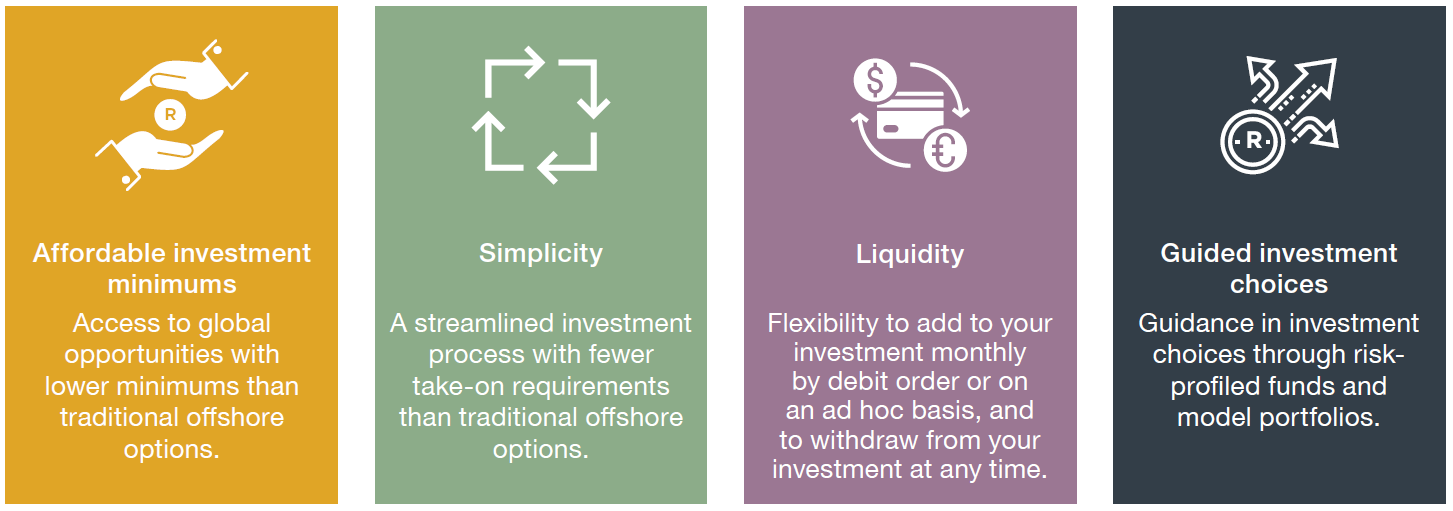Exploring How Spending Off Shore Works: A Comprehensive Guide
Spending offshore offers a complex landscape of obstacles and chances. Recognizing the various sorts of overseas accounts is important for any individual considering this course. The advantages, including enhanced privacy and asset protection, are substantial. Nonetheless, lawful and tax obligation effects call for cautious focus. As investors look for to optimize their portfolios, the steps to develop a viable offshore financial investment technique become essential. What are the vital components that a person must browse to do well in this endeavor?
Recognizing Offshore Accounts and Their Kinds
What drives individuals and organizations to consider overseas accounts? The attraction of financial privacy, asset defense, and possible tax advantages usually draws in the interest of those looking for to manage their wealth extra tactically. Offshore accounts, commonly developed in international jurisdictions, been available in various forms. Individual accounts cater to individual demands, providing solutions like financial savings, investment, or retired life preparation. Service accounts, on the various other hand, offer business wanting to facilitate worldwide deals, enhance personal privacy, or maximize tax obligation obligations. Count on accounts give an added layer of security, permitting people to secure their properties for future recipients. Each kind of offshore account presents special functions, commonly affected by the regulative environment of the host country. Comprehending these differences is vital for people and services, as the choice of account type can notably impact their monetary techniques and conformity with worldwide legislations.
Advantages of Offshore Investing
While many investors look for opportunities to expand their portfolios, offshore investing presents distinct benefits that can improve economic development and safety and security. One noteworthy benefit is the possibility for property protection. Offshore accounts can safeguard investments from political instability or economic slumps in the financier's home country. In addition, offshore financial investments usually offer access to international markets, allowing capitalists to touch into arising economic climates and markets that may not be offered domestically.Another substantial benefit is tax efficiency. Numerous overseas territories supply favorable tax obligation regimes, which can lessen tax liabilities and boost general returns. Additionally, offshore investing can enhance personal privacy, as specific jurisdictions apply strict discretion laws.Lastly, overseas accounts can assist in wealth administration strategies by providing a broader range of financial investment options, consisting of different assets such as property and commodities. Collectively, these advantages make offshore investing an enticing selection for those wanting to enhance their monetary profiles.

Regulative and legal Considerations
Guiding through the regulative and legal landscape of offshore investing requires careful attention and understanding. Investing Off Shore. Capitalists need to navigate a complicated internet of regulations that differ significantly from one territory to one more. Conformity with local guidelines is important; failing to do so can result in extreme penalties, including penalties and imprisonment. Furthermore, understanding the legal frameworks controling foreign investments is crucial for ensuring the defense of assets and preserving operational legitimacy.Key factors to consider include understanding the regulative demands for establishing overseas entities, such as firms or counts on, and adhering to anti-money laundering (AML) and know-your-customer (KYC) policies. Financiers ought to likewise understand reporting responsibilities in their home country, as several nations need disclosure of overseas holdings. Engaging with lawyers experienced in overseas financial investment can give invaluable assistance, assisting investors to reduce risks and safe and secure compliance with applicable laws and regulations while optimizing their investment capacity

Tax Implications of Offshore Investments
Comprehending the regulative and legal factors to consider of overseas investing naturally causes an exam of the tax obligation implications related to these financial investments. Offshore financial investments can provide significant tax obligation benefits, consisting of reduced tax prices and the capacity for tax deferment. Nevertheless, investors must navigate complex tax guidelines in their home countries, as lots of territories need taxpayers to report international earnings and assets.For U.S. people, the Foreign Account Tax Obligation Compliance Act (FATCA) mandates the coverage of overseas accounts, while various other countries have comparable requirements. Failing to abide can lead to severe penalties. Additionally, particular offshore funds might be subject to special tax therapies, such as Passive Foreign Investment Business (PFIC) regulations, making complex investment strategies.Investors should think he said about seeking advice from tax professionals to recognize effects certain to their circumstances and assurance conformity with both domestic and global tax obligation legislations, ultimately optimizing the benefits of their overseas investments while lessening risks.
Steps to Get Going With Offshore Investing
Several financiers looking for to diversify their portfolios transform to overseas investing as a feasible alternative. To begin, one should conduct extensive research study on potential offshore jurisdictions, taking into consideration factors such as regulatory environment, tax, and financial investment chances. Investing Off Shore. After picking an appropriate place, capitalists must develop an overseas account, which generally needs documentation verifying identity and source of funds.Next, investors usually engage with a monetary expert or an overseas financial investment firm knowledgeable about neighborhood regulations and market characteristics. This partnership can assist in crafting a tailored financial investment approach that lines up with specific objectives and risk tolerance.Once the technique is in location, capitalists can continue to pick specific assets or funds for investment, guaranteeing they examine efficiency and risks this article frequently. Finally, maintaining conformity with both neighborhood and home country policies is vital for successful offshore investing, needing continuous diligence and possibly regular examinations with legal experts
Regularly Asked Concerns
How Do I Choose the Right Offshore Jurisdiction?
Choosing the right offshore territory entails assessing aspects such as governing environment, tax obligation benefits, political stability, and convenience of operating. Investigating each option thoroughly guarantees enlightened choices that straighten with specific financial investment goals and risk tolerance.
What Sorts Of Assets Can I Hold Offshore?

Exist Threats Connected With Offshore Spending?
The threats connected with offshore investing consist of lawful intricacies, regulative adjustments, money fluctuations, and prospective political instability. Capitalists should very carefully examine these elements to reduce threats and warranty conformity with worldwide laws and policies.
How Can I Access My Offshore Finances?
To accessibility offshore funds, people usually require to contact their monetary organization, offer necessary identification and paperwork, and adhere to well-known procedures for fund transfers, ensuring conformity with both regional and international laws governing overseas investments.
What Are Usual False Impressions Regarding Offshore Accounts?
Common misunderstandings about overseas accounts consist of beliefs that they are exclusively for tax obligation evasion, absence of regulation, or available to the rich. In truth, navigate here they can be reputable financial devices for varied individuals. Furthermore, overseas investments frequently supply access to worldwide markets, allowing financiers to tap right into arising economic situations and markets that may not be available domestically.Another considerable advantage is tax effectiveness. Overseas investing can boost privacy, as specific territories impose stringent discretion laws.Lastly, offshore accounts can assist in wealth administration methods by giving a wider range of financial investment options, including alternative assets such as genuine estate and assets. Understanding the regulatory and legal considerations of overseas investing normally leads to an examination of the tax obligation effects associated with these investments. Offshore financial investments can offer considerable tax obligation benefits, including minimized tax prices and the potential for tax deferral. After selecting an ideal location, financiers ought to establish an overseas account, which generally requires paperwork verifying identity and source of funds.Next, capitalists often engage with a financial advisor or an overseas investment firm familiar with neighborhood laws and market dynamics.